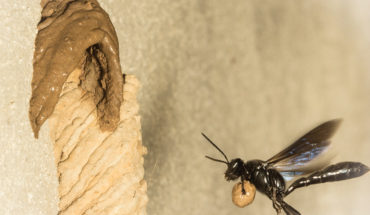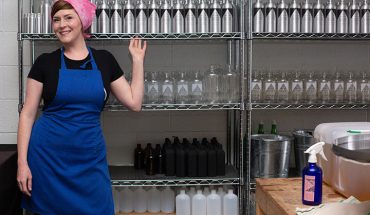Conservationist and longtime Raleigh resident Kevin Brice shares the Triangle’s role in land conservation, our rich natural legacy and his own efforts to help the environment.
As told to Ayn-Monique Klahre
The weekend of October 17-19, thousands of conservationists will decent on Raleigh for the 2019 Land Trust Alliance Rally, an educational conference that’s held in a different spot every year. One of the organizers is Kevin Brice, a longtime Raleigh resident and the Land Trust Alliance’s Southeast Director. We spoke to him about national efforts and the Triangle’s role in land conservation.
What’s your professional background?
I moved to Raleigh in 1994 and was working with the local land trust, the Triangle Land Conservancy. I spent 17 years with them doing all the different kinds of jobs you do for a nonprofit, then finished as president for about 9 years. I helped start up the City of Oaks Foundation, I was a board member and then an executive, and now I’m the Southeast Director for the Land Trust Alliance, which is a national organization based out of DC. My interest has always been in conservation, I started as a volunteer then moved into a staff position, but I have always been focused on how I can be of service to conservation.
Is the Rally always here, or why is it here?
No, it moves around the country. This is the 32nd annual conference and every year it’s someplace different. Last year it was in Pittsburgh, another time in was in Cleveland. Raleigh has a high concentration of land conservancies, particularly in the wider Triangle area, from small single watershed-based organizations to the local offices of international organizations, like the Nature Conservancy. There is also a rich educational pool here with NC State’s College of Natural Resources and Parks and Recreation departments. We’re richly and deeply representation of the conservation community, more than in most communities.
So who’s the Rally for?
Every year we have about 2,000 staff and volunteers from land trusts from across the country who come together for the Rally. It’s a three-day event that we produce, with more than 100 workshops and seminars to educate and inspire land conservationists to do their jobs. We have about 1,000 member organizations from across the country that have joined the Land Trust Alliance, which provides them with educational opportunities like the Rally. It also allows us to advocate on their behalf in congress. We’re trying to build a community of learners to learn from each other. Locally, we enlist groups like the Triangle Land Conservancy and the Eno River Conservancy that work in their communities for conversation.
How does Raleigh rate in terms of land conservation?
What most people don’t realize is that even though we’re a rapidly growing, urbanizing and suburbanizing area, there are thousands of acres of conserved land that’s accessible to the public. To me, what’s most attractive about Raleigh is that is’a great combination of a place to live and have a career, but that you are never far from a forest, farm or natural area to explore.
My wife and I live in Raleigh and have three young kids, a teenager and middle schoolers, and we aren’t too far from Umstead—that’s one of our go-to-places. There, time really shifts. You know, most people don’t know that during the depression, the area that’s now Umstead State Park was exhausted farmland during the Great Depression. The federal government bought out the farmers to give them money to buy more fertile ground, and turned the land over to the state. It’s hard to believe that what’s now beautiful forested land was probably one of the worst places to be 100 years ago!
As a conservationists, what’s the one thing you want people to do?
You know, that’s one of the most important questions to raise. If everyone did one simple thing, not even the same thing, the world would be a much better thing. But one thing that people could do that’s fairly easy to commit to… Well I’ll say that in our family, we’re very cognizant of how much water we use. The little things: Turn off your water when you brush your teeth, don’t leave the water running when you wash the dishes, try to use less water day in and day out. That’s the one thing my family has adopted, and it would go a long way toward helping the environment if everyone did it.




